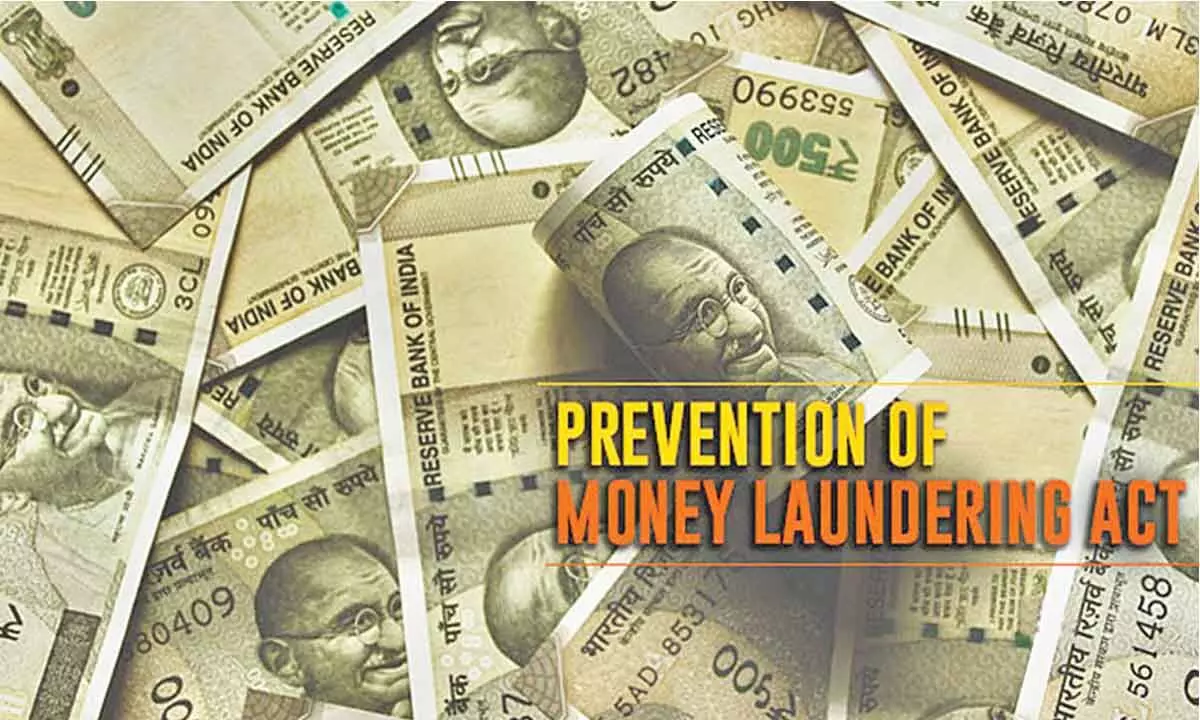Gujarat High Court dismisses plea by woman who alleged that her daughter was forced to marry man of different faith
The Court said that it was clear that the petitioner’s daughter was a major and had married a person of different faith by choice. The Gujarat High Court recently dismissed a habeas corpus plea filed by a woman seeking custody of her adult daughter who was allegedly compelled to marry a man of a different faith. A Bench of Justices Umesh A Trivedi and MK Thakker said that it was clear that the petitioner’s daughter was a major and had married a person of a different faith by choice. “It is clear that daughter of the petitioner is major and she has entered into a marriage with a person of different faith. All the documents produced by the petitioner herself is clear to establish that she is major and entered into a marriage, of course with a person of her choice and not the choice of the parents,” the order stated. According to the petitioner,…
Wife cannot be forced to live in matrimonial home while husband keeps another lady: Himachal Pradesh High Court
The Court made the observation while dismissing a man’s allegation that his wife had deserted him. No wife can be forced to live in the matrimonial home when the husband is keeping another lady with him, the Himachal Pradesh High Court recently observed while rejecting a man’s claim that his wife had deserted him. [Nain Sukh v Seema Devi] Justice Satyen Vaidya, therefore, dismissed a husband’s plea for divorce on allegations of desertion and cruelty. “Respondent (wife) had justifiable ground to live separately as no wife can be forced to live in matrimonial home with husband keeping another lady with him,” the Court said. The Court was dealing with an appeal challenging a family court order, whereby the husband’s plea for a divorce under Section 13 of the Hindu Marriage Act had been dismissed. While challenging the family court order, the husband claimed that he had sufficiently proved that his wife had deserted him. The High Court,…
Probation of Offenders Act not applicable in POCSO Act cases: Calcutta High Court
The Court was dealing with a case involving allegations that the accused, when he was a teenager, had pawed at and touched the breast of a girl while she was out with her mother at a public place The benefit under the Probation of Offenders Act, 1958, cannot be availed by convicts under the Protection of Children from Sexual Offences Act, 2012, (POCSO Act) the Calcutta High Court recently observed while upholding a three-year jail term handed down to a man (appellant) for pawing at a girl while she was walking outside with her mother [Prakash Shaw v. State of West Bengal]. Justice Siddhartha Roy Chowdhury upheld the conviction and sentence while relying on the testimony given by the victim girl. The testimony given by the victim to the Magistrate as well as the trial court by the victim was consistent, the Court found. “There is nothing to impeach her credibility. When a ring of truth is…
Karnataka High Court sets aside family court order requiring wife to pay for husband’s travel from USA to cross-examine him in divorce case
Justice Krishna S Dixit observed that such a condition would virtually foreclose the woman’s right to cross-examine her husband in a serious matter where her marriage was at stake The Karnataka High Court recently set aside an order of a family court requiring a woman to bear her husband’s travel expenses of ₹1.65 lakh from USA to Bengaluru if she wants to cross-examine him in the divorce case between them [Sindhu Boregowda vs Yashwanth Bhaskar BP] Justice Krishna S Dixit observed that such a condition would virtually foreclose the petitioner’s right to cross examine her husband in a serious matter where her marriage was at stake. The single-judge said that courts of justice cannot stipulate a condition to a party which they will not be in a position to comply with. “Putting a condition of the kind would virtually amount to foreclosing petitioner’s right to cross- to examine/further cross-examine the respondent that too…
Karnataka High Court quashes Section 498A IPC case filed against husband for not consummating marriage
The Court opined that if the proceedings were permitted to continue, they would degenerate into harassment and become an abuse of the process of law resulting in a miscarriage of justice. The Karnataka High Court recently quashed proceedings under Section 498A (cruelty to women) of the Indian Penal Code (IPC) initiated against a husband by his wife for failing to consummate their marriage as he was a follower of the sisters of the Brahmakumari Samaja [Aiyappa MB v. State of Karnataka]. Justice M Nagaprasanna said that while the facts of the case clearly amounted to cruelty as a ground for divorce, criminal proceedings could not be allowed to continue. “Finding no ingredient even against the husband, the proceedings if permitted to continue would degenerate into harassment, become an abuse of the process of law and ultimately result in miscarriage of justice,” the order stated. The Court further found that no case was…
Transaction is not benami merely because husband supplied money to buy property in wife’s name: Calcutta High Court
The Court said that even if it is proved that husband paid the consideration money, it has to be further proved that husband really intended to enjoy the full benefit of the title in him alone. A transaction cannot be labelled a benami transaction merely because the husband bought the property in the name of the wife, the Calcutta High Court recently ruled [Sekhar Kumar Roy vs Lila Roy]. A division bench of Justices Tapabrata Chakraborty and Partha Sarathi Chatterjee said that even if it is proved that husband paid the consideration money, it has to be further proved that husband really intended to enjoy the full benefit of the title in him alone. “In the Indian society, if a husband supplies the consideration money for acquiring property in the name of his wife, such fact does not necessarily imply benami transaction. Source of money is, no doubt, an important factor but not a decisive…
Live-in relationship not recognised by law as marriage; couple living together by mere agreement cannot seek divorce: Kerala High Court
The High Court said that law grants recognition only if the marriage is solemnized in accordance with personal law or in accordance with a secular law like the Special Marriage Act. The Kerala High Court recently observed that law does not recognise live-in relationships as as marriage and when two parties decide to live together by virtue of a mere agreement, and not in accordance with any personal law or the Special Marriage Act, they cannot claim it to be a marriage or seek divorce. A division bench of Justices A Muhamed Mustaque and Sophy Thomas observed that live-in-relationships are yet to recognized legally and the law grants recognition to a relationship only if the marriage is solemnized in accordance with personal law or in accordance with secular law like the Special Marriage Act. “Marriage as a social institution, as affirmed and recognized in legislation, reflects the social and moral ideals followed in the…
Plea in Delhi High Court against Adoption Regulations barring parents with two children from adopting third ‘normal child’
A normal child is a child who is not suffering from any disability as provided under the Rights of Persons With Disabilities Act. A plea has been filed before the Delhi High Court challenging the changes made in the Adoption Regulations issued under the Juvenile Justice (Care and Protection of Children) Act, 2015 barring parents from adopting a ‘normal child’ if they already have two children. A normal child is a child who is not suffering from any disability as provided under the Rights of Persons With Disabilities Act. The petition was filed by one Jesi Jeevarathinam, who has two biological children and applied for adoption a child in December 2020. The plea stated that the Steering Committee Resource Authority decided to implement the Adoption Regulations, 2022 with retrospective effect and such a decision was arbitrary, unreasonable and violative of Article 14 of the Constitution. The Court was told that…
Discretion of court to grant bail in PMLA cases is not to be exercised only as last resort: Delhi High Court
The High Court granted six weeks’ interim bail to Indo Spirits founder Sameer Mahandra in the money laundering case related to Delhi excise policy. The Delhi High Court on Monday granted interim bail for six weeks to ‘Indo Spirits’ founder Sameer Mahandru in the money laundering case related to the alleged Delhi excise policy scam. Justice Chandra Dhari Singh held that freedom is a cherished fundamental right and the discretion of the Court in granting bail to accused under the Prevention of Money Laundering Act (PMLA) is not to be exercised only as a last resort. Mahandru had sought bail on medical grounds stating that he is suffering from life-threatening diseases which warrants immediate medical treatment. The plea was opposed by the ED which argued that Mahandru’s condition is ‘stable’. However, after considering the case, the Court observed that health condition of a human being deserves utmost importance and therefore, granted him…
Lack of witnesses to sexual assault not ground to let accused off the hook in POCSO cases: Meghalaya High Court
A bench led by Chief Justice Sanjib Banerjee highlighted that for survivor-children, it is difficult to imagine that their accounts of the crime are conjured and repeated. The Meghalaya High Court recently held that lack of witnesses in sexual assault cases under the Protection of Children from Sexual Offence Act (POCSO Act) will not be a ground to let the accused off the hook in such cases [Arjun Das Vs. State of Meghalaya & ors].. A Bench of Chief Justice Sanjib Banerjee and Justice W Diengdoh stressed that the nature of these offences mean they many time happen not in public view but secretly after the accused lure the survivors to secluded spots. When the survivor is a child, it is improbable that a story would be conjured up regarding such an incident, the Court said. “The law that has developed requires the allegation of the survivor to be taken seriously and, if found to…









